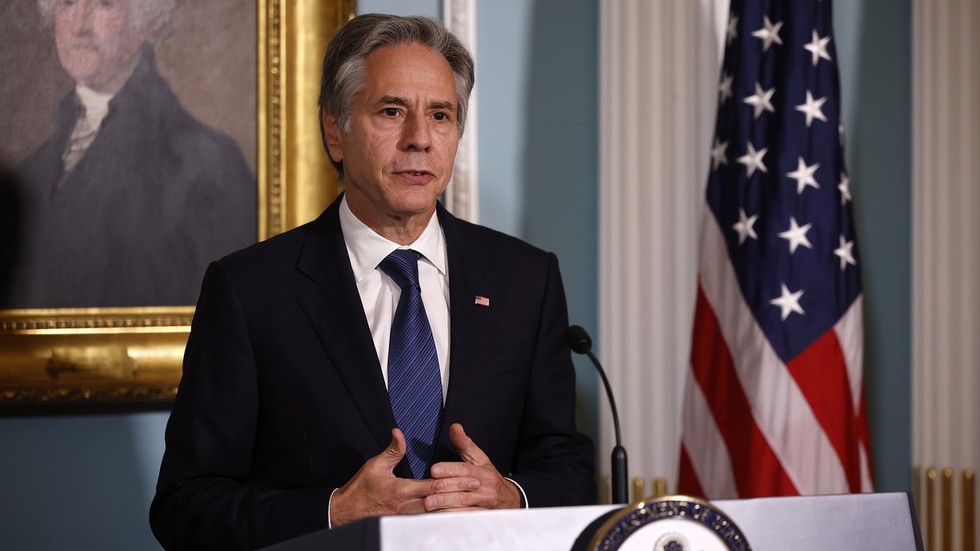In recent statements, US Secretary of State Antony Blinken declared that Israel has successfully achieved its military objectives against Hamas, urging for an end to hostilities in Gaza. This assertion follows Israel’s military operations, which began after Hamas launched a significant offensive into southern Israel on October 7, 2023, resulting in the deaths of around 1,200 Israelis and the capture of over 250 hostages. Consequently, Israel has conducted an extensive military campaign in Gaza, leading to an unprecedented humanitarian crisis where reports indicate that at least 43,000 individuals have died, predominantly women and children, as verified by the United Nations. Blinken emphasized that Israel’s stated goals of dismantling Hamas’s military capabilities and targeting its leadership had been fulfilled, making the current stage ripe for de-escalation and cessation of military activities.
Despite Blinken’s call for a halt to the conflict, he expressed concerns about Israel’s ongoing military presence in Gaza. He highlighted the importance of fulfilling humanitarian obligations to the affected populations and hinted at a potential US plan to prevent Hamas from regaining influence should Israel choose to withdraw its forces. This reflects a growing international concern regarding the humanitarian impact of the ongoing conflict, emphasizing the need for Israel to recognize its responsibilities under international law. As a significant ally of Israel, the US appears to be navigating a delicate balance between supporting its military actions and addressing urgent humanitarian needs in the region.
The situation has prompted Qatar, a nation known for its mediating role in the Israel-Palestine conflict, to reassess its involvement. Last week, Qatari officials announced the suspension of US-backed mediation efforts, citing a lack of seriousness from both parties to end the violence. This diplomatic stalemate underscores the challenges in finding a peaceful resolution, particularly given the rising stakes and numerous casualties resulting from rapid military escalations. Qatar’s stance indicates mounting frustrations within the international community regarding the prolonged conflict and its tragic toll on civilians.
Former Israeli Defense Minister Yoav Gallant’s reported remarks during a private meeting with families of hostages reflect a growing sentiment among some within Israel’s leadership regarding the waning efficacy of continuing military operations in Gaza. Gallant was quoted as stating that the Israel Defense Forces (IDF) had accomplished what was necessary but alluded to a deeper motivation behind the prolonged military presence. His subsequent dismissal by Prime Minister Benjamin Netanyahu highlights internal divisions within the Israeli government regarding the strategy toward Gaza, raising questions about the future trajectory of Israel’s military objectives and governance in the region.
In response to these discussions, criticisms of Netanyahu’s administration have intensified. The left-leaning Haaretz newspaper accused him of pursuing a strategy akin to “ethnic cleansing” in Gaza, alleging that the current government is complicit in war crimes, including the expulsion of Palestinians and the destruction of their homes. This allegation adds layers to the complexities of the conflict, suggesting that beyond military calculations, there are political and ethical implications driving the Israeli administration’s actions. Such accusations have fueled international criticism and concern regarding Israel’s approach to the civilian toll manifesting in Gaza.
Compounding the situation, Israel has also been engaged in military operations against Hezbollah in Lebanon, widening the regional conflict. The death toll in this parallel conflict has starkly risen, totaling 3,287 since the onset of the conflict in October. This escalation highlights the multidimensional aspects of the conflict in the region, complicating efforts for a cohesive resolution to ongoing violence. The situation underscores a critical juncture not only for Israel and Palestine but for international diplomacy as well, as pressure mounts to address both the humanitarian crises and the broader geopolitical ramifications of continued warfare in the Middle East.

